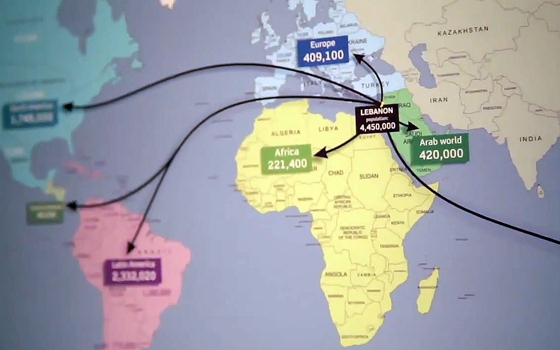A survey by the World Bank made available on Tuesday 28 March shows that diaspora can be an important driver of development, cooperation, trade, globalization, integration and entrepreneurship in the Middle East and North Africa (MENA). According to the bank, this potential has not been realized or fulfilled.
The survey, made with nearly 1,000 people that have migrated, showed that 68% are willing to invest capital and engage in trade with their countries of origin. A third of them would like to open businesses in these countries. Among the preferred investments by members of the MENA diaspora are real estate, direct investments and financial bonds.
But more than half of the MENA diaspora members say that the weak business environment is an obstacle to investments, plus the lack of information on local regulation and existing opportunities. The lack of human capital and local tax systems were also mentioned as constraints, but only by a small percentage.
For 14%, the Arab Spring diminished their interest in investing in the development of their home countries. For 26%, their interest increased with the Arab Spring, and 60% declared that their interest remained unchanged. Among Tunisians interviewed, the percentage of people that declared that their interest had waned was larger: 51% against 34% whose interest increased.
Despite these factors, the majority of the emigrants feel strongly connected to their home countries. Among those surveyed, 85% declared that their country of origin is important to them and a similar percentage declared that they would like to be more closely connected to their home countries. Data from the survey show that over 5% of the MENA population lives abroad, among them many professionals.
The World Bank says that knowledge moves when people do and mentions India as an example, with a high-tech industry booming thanks to Indian emigrants and people that returned from the diaspora. In the MENA region, the bank states that expatriates are responsible for the majority of patents registered.
The survey also says that only some countries of the Middle East and North Africa make efforts to involve their diaspora in development issues. The Moroccan government is mentioned as one with the most ambitious approach, with projects such as the Regional Investment Center, which focuses on projects headed by the diaspora, and the Houses of Moroccans Living Abroad, a program to provide information to expatriates returning to their country.
The World Bank says that MENA governments would gain more by formally recognizing the contribution of citizens living abroad beyond remittances, especially through public policies. But these actions should be tailored to the reality of each country or region, according to the bank. “Governments can also encourage diaspora contribution to competitive research and innovation in their home countries,” says the study.
The data from the survey shows that the Palestine diaspora consists of 1.8 million people, with Morocco counting 1.58 million and Iraq, 1.5 million citizens. According to the World Bank, Egypt’s diaspora has 1.3 million people and Algeria’s has 905,000. These are the five Arab countries with the largest groups of expatriates. The survey was conducted online and had 827 valid responses out of 1,000.
ANBA – Brazil-Arab News Agency
30 March

























































